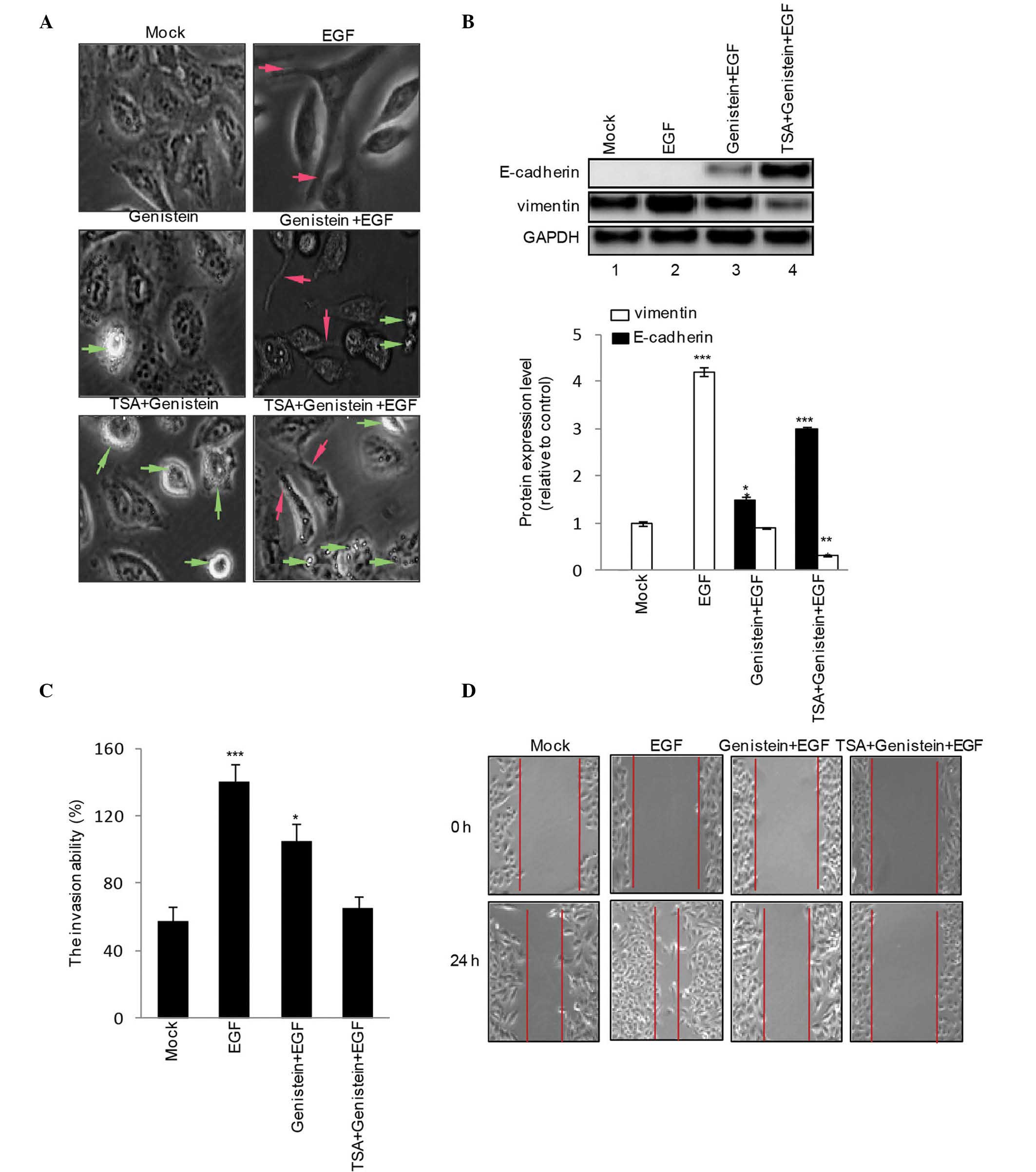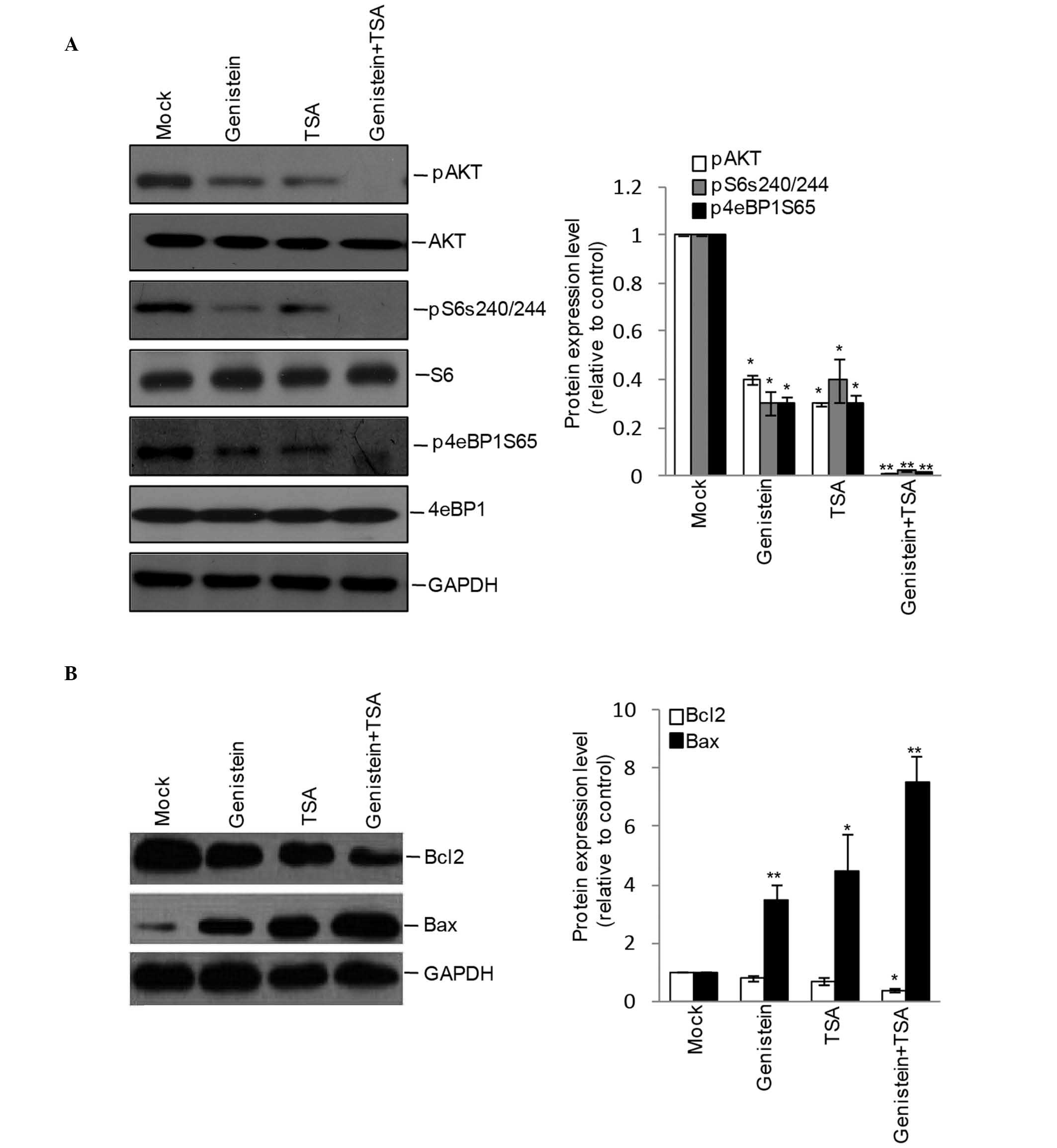|
1
|
Miao S, Mao X, Pei R, Miao S, Xiang C, Lv
Y, Yang X, Sun J, Jia S and Liu Y: Antitumor activity of
polysaccharides from Lepista sordida against laryngocarcinoma in
vitro and in vivo. Int J Biol Macromol. 60:235–240. 2013.
View Article : Google Scholar : PubMed/NCBI
|
|
2
|
Xie J, Jin B, Li DW, Shen B, Cong N, Zhang
TZ and Dong P: ABCG2 regulated by MAPK pathways is associated with
cancer progression in laryngeal squamous cell carcinoma. Am J
Cancer Res. 4:698–709. 2014.PubMed/NCBI
|
|
3
|
Hoffman HT, Porter K, Karnell LH, Cooper
JS, Weber RS, Langer CJ, Ang KK, Gay G, Stewart A and Robinson RA:
Laryngeal cancer in the United States: Changes in demographics,
patterns of care, and survival. Laryngoscope. (Suppl 111)116:1–13.
2006. View Article : Google Scholar : PubMed/NCBI
|
|
4
|
Kraljevic Pavelic S, Cacev T and Kralj M:
A dual role of p21waf1/cip1 gene in apoptosis of HEp-2 treated with
cisplatin or methotrexate. Cancer Gene Ther. 15:576–590. 2008.
View Article : Google Scholar : PubMed/NCBI
|
|
5
|
Li L, Jiang AC, Dong P, Wan Y and Yu ZW:
The characteristics of Hep-2 cell with multiple drug resistance
induced by Taxol. Otolaryngol Head Neck Surg. 137:659–664. 2007.
View Article : Google Scholar : PubMed/NCBI
|
|
6
|
Groth-Pedersen L and Jäättelä M: Combating
apoptosis and multidrug resistant cancers by targeting lysosomes.
Cancer Lett. 332:265–274. 2013. View Article : Google Scholar
|
|
7
|
Suzuki R, Kang Y, Li X, Roife D, Zhang R
and Fleming JB: Genistein potentiates the antitumor effect of
5-Fluorouracil by inducing apoptosis and autophagy in human
pancreatic cancer cells. Anticancer Res. 34:4685–4692.
2014.PubMed/NCBI
|
|
8
|
Chen J, Lin C, Yong W, Ye Y and Huang Z:
Calycosin and genistein induce apoptosis by inactivation of
HOTAIR/p-Akt signaling pathway in human breast cancer MCF-7 cells.
Cell Physiol Biochem. 35:722–728. 2015.PubMed/NCBI
|
|
9
|
Beard N, Benghuzzi H, Tucci M and Cason Z:
The effects of genistein concentrations on Hep-2 cellular function.
Biomed Sci Instrum. 41:199–204. 2005.PubMed/NCBI
|
|
10
|
Dynek JN and Vucic D: Antagonists of IAP
proteins as cancer therapeutics. Cancer Lett. 332:206–214. 2013.
View Article : Google Scholar
|
|
11
|
Li YL, Yang TS, Ruan WM, Cui W, Jin Y and
Zou XM: Effect of trichostatin a on SGC-7901 gastric cancer cells.
Int J Clin Exp Med. 7:1958–1966. 2014.PubMed/NCBI
|
|
12
|
Han C, Gu H, Wang J, Lu W, Mei Y and Wu M:
Regulation of L-threonine dehydrogenase in somatic cell
reprogramming. Stem Cells. 31:953–965. 2013. View Article : Google Scholar : PubMed/NCBI
|
|
13
|
Ruan WM, Li YL, Nie G, Zhou WX and Zou XM:
Differential expression of glycoprotein non-metastatic melanoma
protein B (GPNMB) involved in trichostatin A-induced apoptosis in
gastric cancer. Int J Clin Exp Med. 7:4857–4866. 2014.
|
|
14
|
Han C, Jin L, Mei Y and Wu M: Endoplasmic
reticulum stress inhibits cell cycle progression via induction of
p27 in melanoma cells. Cell Signal. 25:144–149. 2013. View Article : Google Scholar
|
|
15
|
Liu D, Yan L, Wang L, Tai W, Wang W and
Yang C: Genistein enhances the effect of cisplatin on the
inhibition of non-small cell lung cancer A549 cell growth in vitro
and in vivo. Oncol Lett. 8:2806–2810. 2014.PubMed/NCBI
|
|
16
|
Zhang LL, Li L, Wu DP, Fan JH, Li X, Wu
KJ, Wang XY and He DL: A novel anti-cancer effect of genistein:
Reversal of epithelial mesenchymal transition in prostate cancer
cells. Acta Pharmacol Sin. 29:1060–1068. 2008. View Article : Google Scholar : PubMed/NCBI
|
|
17
|
Wang X, Xu J, Wang H, Wu L, Yuan W, Du J
and Cai S: Trichostatin A, a histone deacetylase inhibitor,
reverses epithelial-mesenchymal transition in colorectal cancer
SW480 and prostate cancer PC3 cells. Biochem Biophys Res Commun.
456:320–326. 2015. View Article : Google Scholar
|
|
18
|
Dai W, Wang F, He L, Lin C, Wu S, Chen P,
Zhang Y, Shen M, Wu D, Wang C, et al: Genistein inhibits
hepatocellular carcinoma cell migration by reversing the
epithelial-mesenchymal transition: Partial mediation by the
transcription factor NFAT1. Mol Carcinog. 54:301–311. 2015.
View Article : Google Scholar
|


















